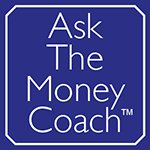If you’ve been thinking about closing up your regular bank account in favor of joining a credit union, make sure you understand both the benefits and disadvantages of making the switch.
As bank fees continue to rise and many retail banks impose penalties on low balances, many Americans are turning their sights on credit unions in their area. A recent grassroots consumer movement called “National Bank Transfer Day” pushed many to finally make the switch.
But are credit unions really a good alternative to banks? Here’s what you need to know:
What a Credit Union Can Offer
Unlike retail banks, credit unions are owned by their members so they are more focused on delivering customer service and offering a basic set of financial products.
If you’re just looking for the basics – namely, a checking account, savings account, and maybe a home loan or auto loan, a credit union can probably satisfy your needs. If you prefer to support local businesses, you might also prefer to bank with a credit union in your area out of principle.
Since credit unions are non-profit organizations, they’re typically thought to be more concerned about their client-members’ best interests. They also sometimes offer perks and rewards for their members that banking customers don’t get.
For example: once the credit union has covered all of its basic costs, any “profits” are paid out to members as a bonus. Another benefit? Lower rates, or at least rates that are frequently more competitive, on loans.
If you’ve been shopping around for loan products or can’t seem to find a loan you qualify for at the local bank, a credit union may offer you the best deal in town.
Should You Make the Switch?
Is it time to make the switch from a bank to a credit union? If you can answer “yes” to some or most of the following questions, it may be time to close up that bank account and head on over to your neighborhood credit union:
- Do you want fee-free ATM services?
- Are you only interested in opening a checking or savings account?
- Do you want to open a “no touch” savings account at a high interest rate?
- Do you prefer more personalized services?
- Are you interested in supporting a local business?
- Are you willing to go through all the steps to close down your bank account? Some banks do have a fairly complex process and may require an in-person visit with a personal banker, signed documents sent via certified mail, and multiple phone calls.
Making the switch from a bank to a credit union can pay off in the long run and may give you a chance to enjoy some hassle-free services. Still, you may not get the full scope of services you would at a corporate bank – some credit unions still don’t offer online banking options. Take some time to learn about the pros and cons of both financial institutions to make the most informed decision for your particular situation.








